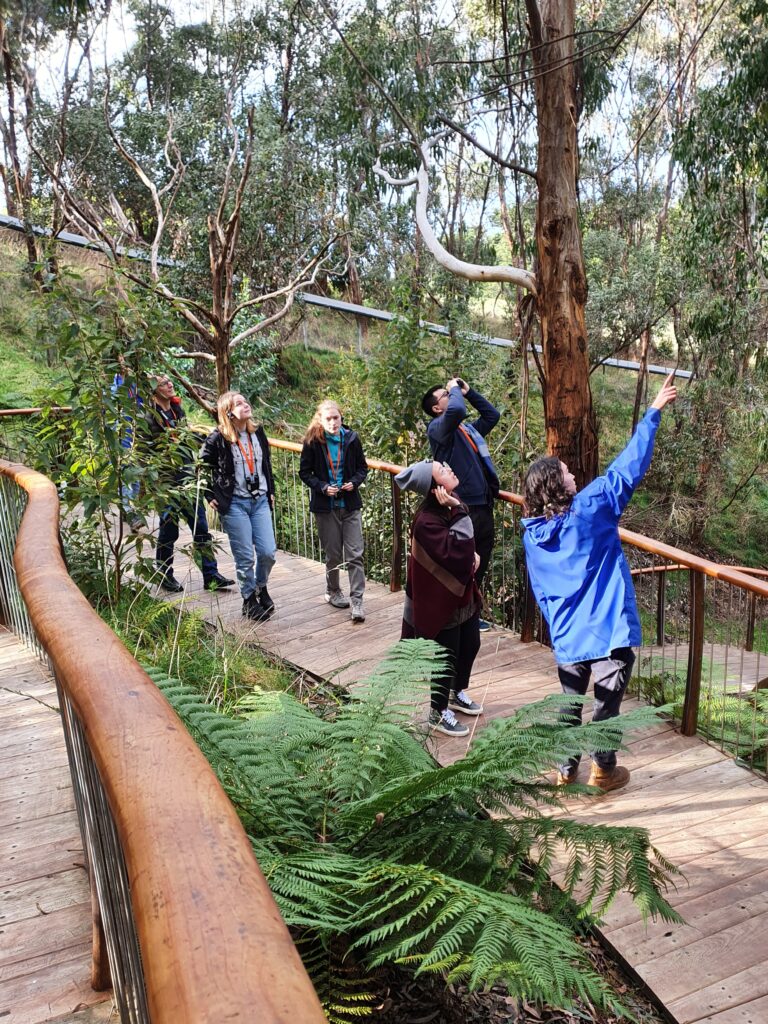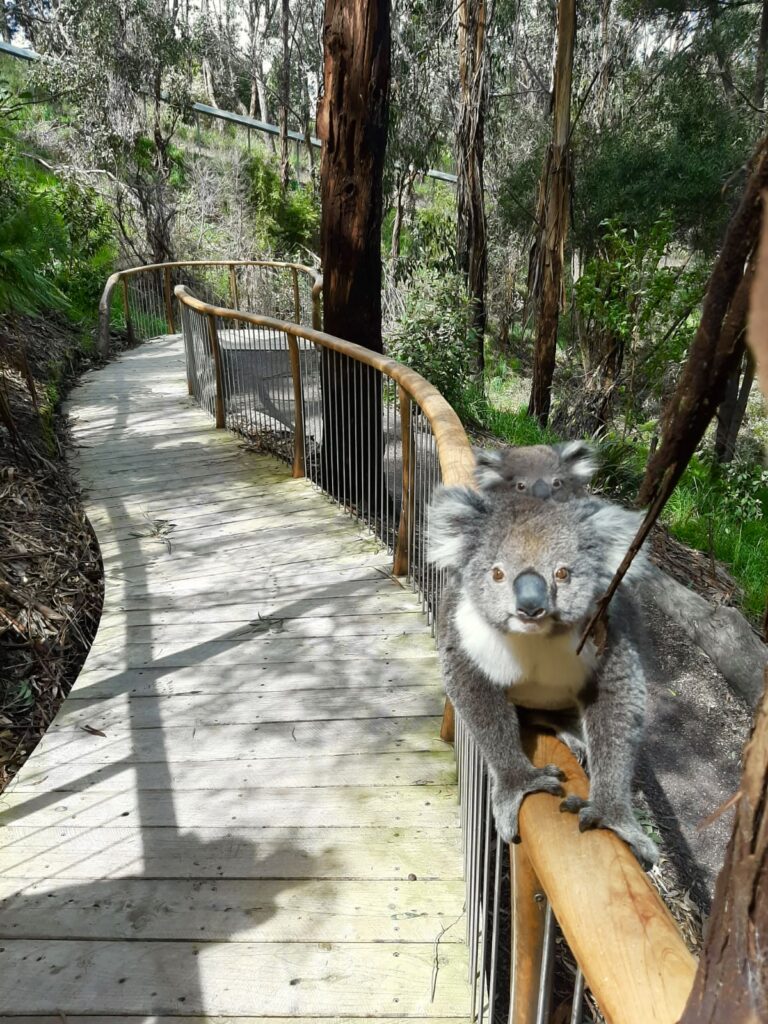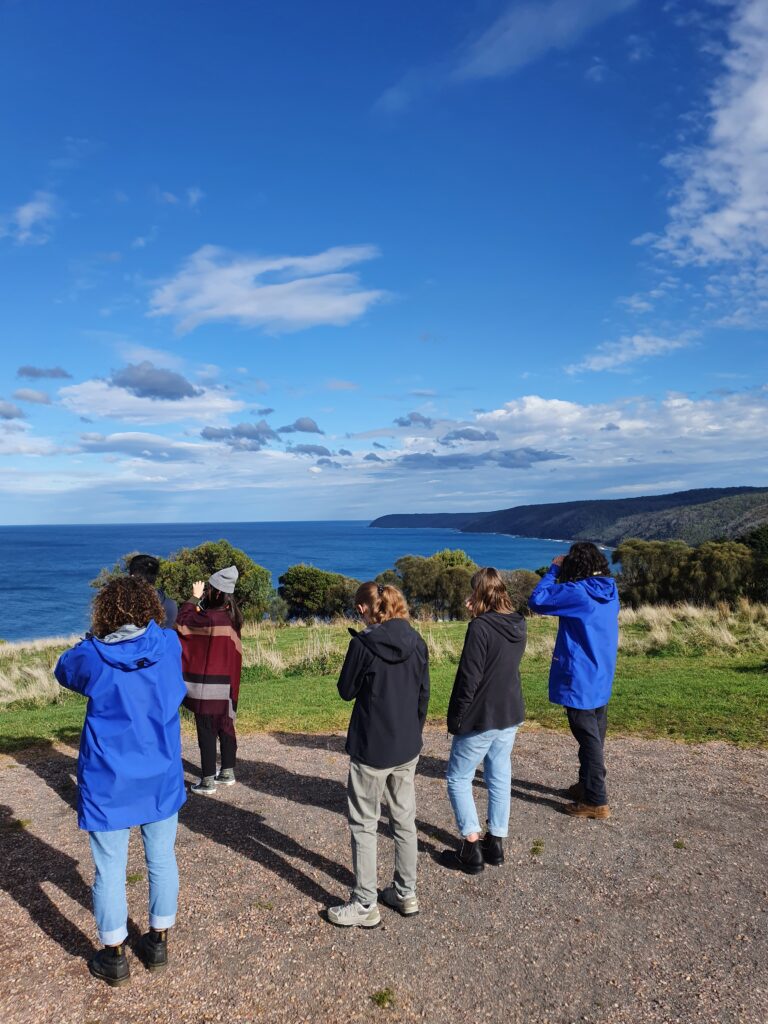By: Leonie Foster, July 2022
Before the COVID pandemic saw a halt to travel in 2019, there were 1.5 billion international tourists travelling globally, according to the United Nations World Tourism Organization.
Depending on your view that’s 1.5 billion problems – contributing to pollution, carbon emissions and worse – but the way I see it, it’s 1.5 billion opportunities.
A growing demand for environmentally and culturally responsible tourism means the sector is poised to have a positive impact on nature and many organisations are inspiring travellers to interact with the natural world differently.
Over the past couple of years, we have been forced to slow down and reflect on what is important to us. Travel is about exploring the new whilst connecting to those close to us.
As the world continues to reopen to travel, people are looking for experiences that are good for the environment, that give back, and that ensure their money is going to a good cause.
Is it possible to travel for good?
I have spent the last decade as an ecotourism auditor, lecturer and industry development manager.
During this time, I have worked with countless businesses eager to use tourism as a tool for conservation, community development and to inspire cultural understanding.
However, many businesses struggle to know where to start or what step to take next to go beyond the ‘obvious’ ways of reducing their impact and transitioning to creating real positive change.
What is “ecotourism” anyway?
According to the International Ecotourism Society, ecotourism is “responsible travel to natural areas that conserves the environment and improves the well-being of local people.”
While many tourism operators claim to be “eco”, the best way to find out whether an experience is legitimately doing good for the world is to check if they are certified by dedicated organisations such as Ecotourism Australia.
Some operators, like those listed below, have achieved Advanced Ecotourism Certification, meaning they are Australia’s leading and most innovative ecotourism products that operate with minimal impact on the environment. They also provide opportunities to learn about the environment with operators who are committed to achieving best practice, using resources wisely, contributing to conserving the environment and helping local communities.
Three must-see Australian experiences going ‘beyond’ ecotourism
These three must-see Australian ecotourism experiences have community and conservation at the core of their mission.
Wildlife Wonders, Apollo Bay, Victoria
Wildlife Wonders offers visitors a unique opportunity to experience a 75-minute Walk with Wildlife nature tour through the magical Otways bushland with a conservation guide.
To me, Wildlife Wonders epitomises best practice ecotourism. In fact, it is challenging the idea of what is possible. Established by the Conservation Ecology Centre, Wildlife Wonders’ mission lies in being a trailblazer for changing the way funding is generated for conservation, with 100% of its operating surplus directed to conservation programs.
What makes Wildlife Wonders so inspiring to be involved with is its ‘ecopreneur’ spirit – driven by founders Lizzie Corke and Shayne Neal. The core which it operates from, every fibre of its being and every decision taken, is based on an unwavering commitment to a bigger mission: to protect and care for the wild species of the Otways and to take people on a journey of discovery and understanding.
The local community is integral to the business as well, with local produce and handmade products available through the café and gift shop. Wildlife Wonders also runs a series of schools’ programs, community education days and hosts a local book club.
I am proud to be part of this committed community of ecopreneurs, serving as a Director on the Wildlife Wonders board, pushing to change the way tourism can impact our natural world.
Pennicott Wilderness Journeys, Tasmania
Penicott Wilderness Journeys take eco-cruise experiences around Bruny Island, Tasman Island and Wineglass Bay in Tasmania, as well as at their recently added location of Wilson’s Promontory in Victoria.
Driven by a desire to give back to the environment and community that supports them, Pennicott Wilderness Journeys established the Pennicott Foundation as a flagship for important philanthropic activities.
In 2011, the founder, Robert Pennicott, circumnavigated Australia in a 5.4 metre inflatable dinghy, raising $300,000 for conservation and to assist Rotary’s efforts to eradicate polio. Other projects the Foundation has contributed to include eradicating feral cats from Tasman Island and rats from Big Green Island. Since the successful eradications, over 100,000 breeding seabirds are saved each year.
Pennicott Wilderness Journeys support their community through programs for local schools, learn to swim programs as well as numerous charities through donation and sponsorship.
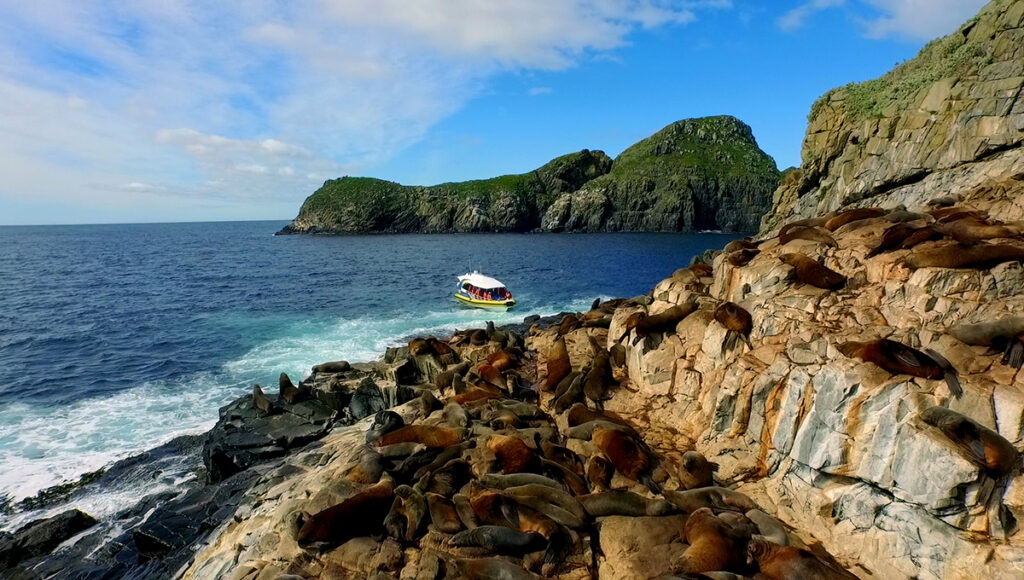
Lady Elliot Island Eco Resort, Queensland
Lady Elliot Island is a coral cay situated at the southern tip of the Great Barrier Reef.
Since the 1960’s custodians of the island have been driven to restore Lady Elliot Island back to its natural state. The island had nearly all its vegetation removed during a period when mined for guano. It now provides the nesting areas for the second highest diversity of seabirds on the Great Barrier Reef.
In 2018, Lady Elliot Island was selected as the first ‘climate change ark’ through the Great Barrier Reef Foundation’s Reef Islands Initiative. This initiative brings the Resort, local businesses, Government, community and Traditional Owners together to fast-track the Island’s restoration through on ground and in water actions.
The current mission of the Gash Family, who manage the Resort, is “to be custodians of this pristine environment. To enable it to exist and be preserved as nature intended, while giving visitors the opportunity to experience it in an economically and ecologically viable way, without interfering with or having any adverse impact upon the long-term sustainability of the island’s unique ecosystem”.
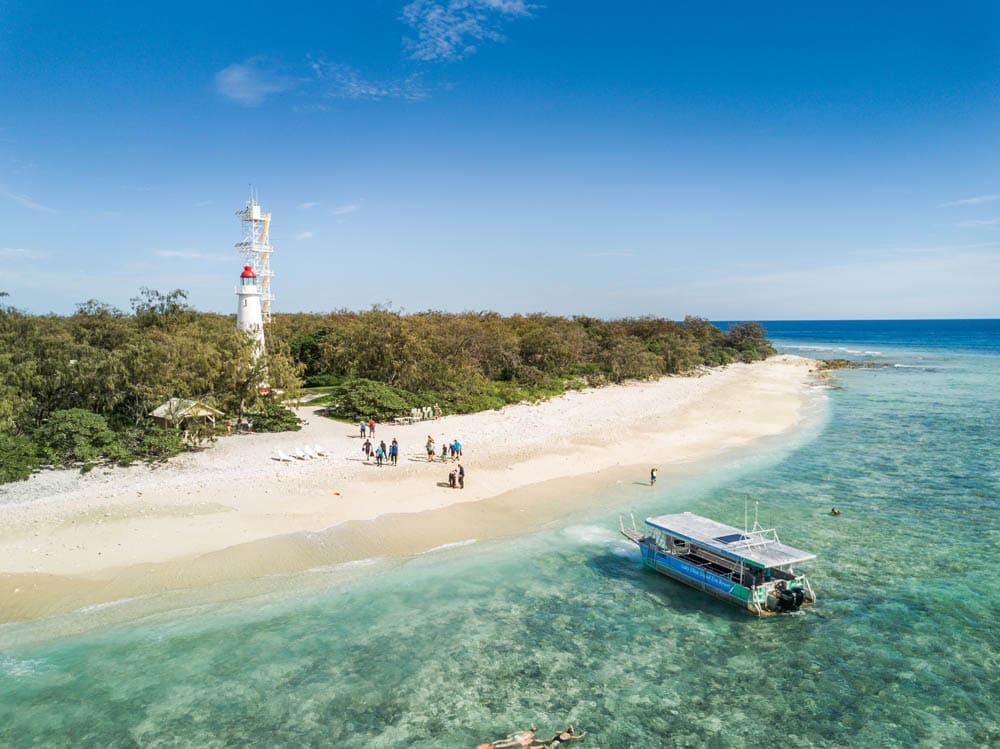
Tourism that gives back
Sir David Attenborough’s latest documentaries implore on us that now is the time for action. As ‘the voice of nature’, Sir David sounds more like an environmental activist in his older age, using his global platform to spotlight the impact humans have on the nature world; “to restore stability to our planet, therefore, we must restore its biodiversity, the very thing we have removed. It is the only way out of this crisis that we ourselves have created”.
At Wildlife Wonders, through our social enterprise ecotourism model we acknowledge our role as a leader in our field and are committed to supporting others. We believe tourism can provide alternative funding models for conservation that break short-term funding cycles and engage travellers in a vision for a future which is wilder and where landscapes are cared for, forever.

About Leonie
Leonie Foster is a Director of Wildlife Wonders. She has been a technical advisor for various Australian and international ecotourism projects including with Ecotourism Australia, developing the world’s first ecotourism destination certification for protected area management agencies and for the Government of Vanuatu, developing Vanuatu’s Tourism Accreditation Program.
She was an external collaborator of the United Nations World Tourism Organization working on best practice ecotourism within the Asia Pacific region as well as an Associate Lecturer in Responsible Tourism at UQ Business School and an independent auditor for Ecotourism Australia. Leonie is currently the Special Projects Manager at the Cambridge Conservation Initiative.

